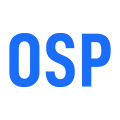nhancing Revenue Cycle with Denial Appeal Management Software
In the healthcare industry, the reimbursement process is often complicated by insurance claim denials. These denials can cause significant delays in payments, leading to disrupted cash flow and additional administrative burden for healthcare providers. Denial appeal management software is designed to streamline the process of handling these rejected claims, helping medical practices, hospitals, and other healthcare organizations improve their revenue cycle management.
What is Denial Appeal Management Software?
Denial appeal management software automates the process of handling denied insurance claims. It allows healthcare providers to track, manage, and resolve claims that have been rejected by insurance companies. These systems help providers understand the reasons for denial, streamline the documentation process for appeal submission, and improve the overall efficiency of the billing team.
The software is built to track all denied claims in one centralized location, providing an easy-to-use dashboard that allows healthcare professionals to monitor the status of appeals. This automation reduces manual errors, accelerates the resolution process, and minimizes the chances of missed or incorrect submissions.
Key Features of Denial Appeal Management Software
Centralized Denial Tracking: The software stores information about all denied claims, offering a comprehensive view of the current status and outstanding appeals. This ensures no claims fall through the cracks and helps providers stay on top of each case.
Root Cause Analysis: By identifying common reasons for claim denials, healthcare providers can address underlying issues, reducing future denials. Whether it’s coding errors, missing information, or incorrect insurance details, the software helps pinpoint trends and areas of improvement.
Automated Resubmission: The software can automatically generate the necessary documentation and resubmit claims to the insurance companies, saving time and ensuring compliance with deadlines.
Detailed Reporting and Analytics: The software offers detailed reports on the appeal process, including success rates, financial impacts, and denial trends. This data enables organizations to make informed decisions about how to improve their billing practices.
Integration with EHR Systems: Denial appeal management software integrates with Electronic Health Records (EHR) and practice management systems, allowing for a seamless flow of patient information. This integration ensures that the necessary documentation and patient data are quickly accessible for appeals.
Benefits of Denial Appeal Management Software
Improved Cash Flow: The ability to quickly address denied claims ensures faster reimbursement and helps organizations maintain a consistent cash flow. Reducing the time spent on appeals also prevents delays in payment.
Increased Efficiency: Automating the appeal process frees up valuable time for billing teams, allowing them to focus on other important tasks. The software eliminates manual tracking, reducing administrative workload and human error.
Enhanced Compliance: With built-in compliance features, the software ensures that all denials and appeals meet the latest industry standards and insurance company requirements, reducing the risk of further complications.
Better Decision-Making: With access to detailed analytics, healthcare providers can optimize their billing practices and improve overall revenue cycle performance.
Conclusion
Denial appeal management software is an essential tool for healthcare providers looking to streamline their billing processes, improve cash flow, and reduce administrative inefficiencies. By automating the tracking, management, and resubmission of denied claims, this software ensures faster resolution times and more consistent reimbursement. As the healthcare industry continues to grow in complexity, embracing technology like denial appeal management software is vital for financial stability and operational success.
Source:
https://www.osplabs.com/medical-billing-solutions/denial-appeal-management-software/
nhancing Revenue Cycle with Denial Appeal Management Software
In the healthcare industry, the reimbursement process is often complicated by insurance claim denials. These denials can cause significant delays in payments, leading to disrupted cash flow and additional administrative burden for healthcare providers. Denial appeal management software is designed to streamline the process of handling these rejected claims, helping medical practices, hospitals, and other healthcare organizations improve their revenue cycle management.
What is Denial Appeal Management Software?
Denial appeal management software automates the process of handling denied insurance claims. It allows healthcare providers to track, manage, and resolve claims that have been rejected by insurance companies. These systems help providers understand the reasons for denial, streamline the documentation process for appeal submission, and improve the overall efficiency of the billing team.
The software is built to track all denied claims in one centralized location, providing an easy-to-use dashboard that allows healthcare professionals to monitor the status of appeals. This automation reduces manual errors, accelerates the resolution process, and minimizes the chances of missed or incorrect submissions.
Key Features of Denial Appeal Management Software
Centralized Denial Tracking: The software stores information about all denied claims, offering a comprehensive view of the current status and outstanding appeals. This ensures no claims fall through the cracks and helps providers stay on top of each case.
Root Cause Analysis: By identifying common reasons for claim denials, healthcare providers can address underlying issues, reducing future denials. Whether it’s coding errors, missing information, or incorrect insurance details, the software helps pinpoint trends and areas of improvement.
Automated Resubmission: The software can automatically generate the necessary documentation and resubmit claims to the insurance companies, saving time and ensuring compliance with deadlines.
Detailed Reporting and Analytics: The software offers detailed reports on the appeal process, including success rates, financial impacts, and denial trends. This data enables organizations to make informed decisions about how to improve their billing practices.
Integration with EHR Systems: Denial appeal management software integrates with Electronic Health Records (EHR) and practice management systems, allowing for a seamless flow of patient information. This integration ensures that the necessary documentation and patient data are quickly accessible for appeals.
Benefits of Denial Appeal Management Software
Improved Cash Flow: The ability to quickly address denied claims ensures faster reimbursement and helps organizations maintain a consistent cash flow. Reducing the time spent on appeals also prevents delays in payment.
Increased Efficiency: Automating the appeal process frees up valuable time for billing teams, allowing them to focus on other important tasks. The software eliminates manual tracking, reducing administrative workload and human error.
Enhanced Compliance: With built-in compliance features, the software ensures that all denials and appeals meet the latest industry standards and insurance company requirements, reducing the risk of further complications.
Better Decision-Making: With access to detailed analytics, healthcare providers can optimize their billing practices and improve overall revenue cycle performance.
Conclusion
Denial appeal management software is an essential tool for healthcare providers looking to streamline their billing processes, improve cash flow, and reduce administrative inefficiencies. By automating the tracking, management, and resubmission of denied claims, this software ensures faster resolution times and more consistent reimbursement. As the healthcare industry continues to grow in complexity, embracing technology like denial appeal management software is vital for financial stability and operational success.
Source: https://www.osplabs.com/medical-billing-solutions/denial-appeal-management-software/









